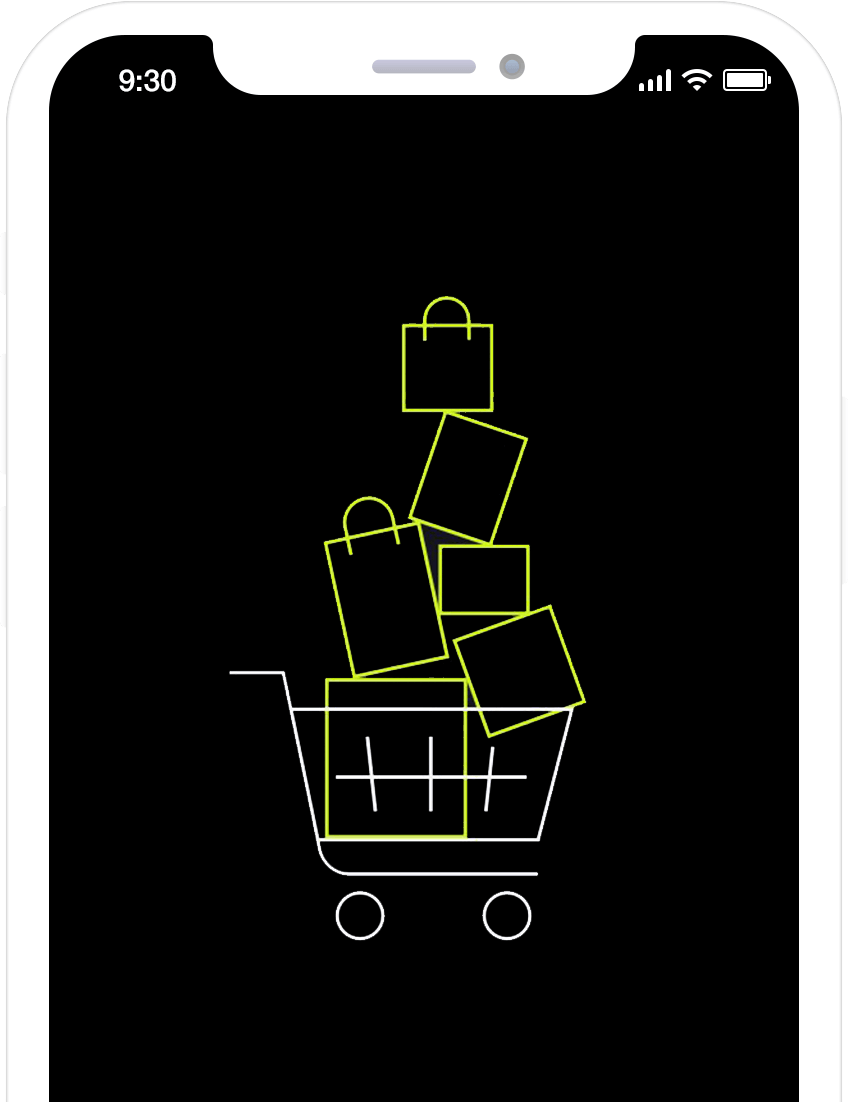Unique store content per market
Shopify Markets offers the ability to edit one Shopify uniquely per market. Within Shopify's theme editor, you can easily switch between your Shopify Markets and add/hide page sections or change the content of existing ones on a per-market basis. This can be powerful for brands who wish to offer customers a unique on-site experience beyond, language, currency, products and price. This gives brands the flexibility to offer unique experiences to their customers without the need to have completely separate instances of Shopify stores per territory.
Different plans & what’s included.
The features offered on the Shopify Markets platform vary depending on which Shopify plan a merchant is on, with additional features being offered to those on Advanced Shopify and Shopify Plus plans. All merchants on the Shopify platform are able to manage how they sell to each market from one place, and will benefit from the following core features: Selling in 136 currencies, with local payment options with Shopify Payments. Selling in up to 20 languages around the world. Setting up custom domains to optimise for search platforms, and smart settings that optimise market operations.
Those merchants on Advanced Shopify and Shopify Plus plans can also benefit from further features such as: offering estimated duties and taxes. Estimate and collect duty and import taxes at checkout. And manage fulfillment locations per market. These features are especially beneficial for larger enterprises who want to establish or maintain a strong and competitive international presence.
Shopify Markets Pro
Shopify aunched Shopify Markets Pro to help larger business manage the complexities internationalisation brings, allowing merchants who use the platform to sell to 150+ markets more easily than ever before. Customers using Shopify Markets Pro are able to explore their store and make purchases in their own currency, as well as accept payments in their own currency at assured exchange rates. It is the simplest option for Shopify stores to expand globally. Shopify Markets Pro is powered and is in collaboration with Global-E. Unique features of Shopify Markets Pro include:
•Manage your biggest liabilities: Get protection against fraud and chargebacks, access guaranteed foreign exchange currency conversion, and avoid currency fluctuation.
•Allow Shopify to manage compliance; you can relax knowing that tax, duties, and local laws are being taken care of.
•Offer top payment methods, local currency, and eliminate surprise charges at delivery by ensuring that tariffs are collected in advance to give customers a fantastic experience.
•Global operations can be simplified directly from your Shopify admin. Access integrated tools like translations, domains, and much more. You may also access consolidated reporting and personalised recommendations.
•Utilise reduced shipping labels with DHL express to get affordable express shipping labels. Native fulfilment from Shopify or through significant third-party logistical partners
The fact that Shopify Markets Pro can be managed from a single dashboard is its most striking feature. You can specify the target markets that your company will sell to and learn more about how well your international sales are performing. By offering a variety of language choices and changing the prices of your products into the local currencies of each market, you can also create local experiences there.
Benefits of Shopify Markets
On the face of it, Shopify markets allows merchants to enable a new market to sell their products through, reaching more customers and potential sales than they would be able to selling exclusively to domestic customers alone. Merchants can assign a region or regisions to a market, and set unique currencies and languages depending on the market selected, with inventory being tracked globally with Shopify Locations. Let’s dive in a little more detail on some of these benefits of using Shopify Markets.
For international customers, using Shopify Markets makes currency conversions simpler.
Approximately 92% of shoppers, according to Shopify, would much prefer to make purchases in their home currency. Shopify Markets makes currency conversion easier by showing prices in the native currency of the market you've selected. In addition to this the use of Shopify Markets makes language translation simpler. Three-quarters of buyers prefer to make purchases in their native tongue, according to Shopify data. Localising your storefront with local languages improves the entire experience for customers, much like using local currencies does. With the help of this functionality, you can improve conversion rates, generate sales, and improve profitability of your online store.
By utilising Shopify Markets, you can benefit from additional payment options.
Usually, some payment options are restricted depending on region. For example, credit cards, third-party payment gateways, and other applications can be made available as local payment options. Customers usually prefer paying in a particular way depending on where they are based in the world. For instance, credit cards are preferred by 82% of US consumers. Around 80% of people in Europe choose digital wallets. Particularly in the Netherlands, bank transfers are the most popular way to pay. Using Shopify Markets to offer a wider variety of payment options can help improve conversions around the globe.
Your SEO is improved by using Shopify Markets. One of the most important factors in increasing the visibility of your online store to potential customers is search engine optimisation (SEO). Your SEO ranking for a chosen market can be improved by localising your content. Utilising customised domains specifically helps in raising the SEO positioning of your Shopify store. For example, improving your positioning in the French market by emplying a .ft domain name. These specialised domain names are usually more effective at ranking websites in different countries than their .com or .co.uk counterparts.
You can automatically collect duties and taxes by utilising Shopify Markets.
Shopify Markets make it easier to collect taxes and levies. For multinational business owners, this position might become a real headache. Fortunately, Shopiffy Markets handles the details. The fact that this Shopify Market feature informs clients up front about pricing, shipping, and taxes is its strongest feature. You can anticipate an increase in sales conversion and a decrease in cart abandonment rate as a result.
Limitations of Shopify Markets
Of course, there are some limitations to using Shopify Markets. Although these drawbacks are fewer and less significant than the benefits of Shopify Markets, they are worth noting before jumping right into the platform.
Shopify Markets has some exclusive features that cannot be accessed without the Shopify Markets Pro version of the platform.
The Shopify Market app and the Pro version are the two major tiers of Shopify Markets. Features such as additional payment methods, more seamless duties processing, prepaid shipping costs, tax and duty compliance, and fraud prevention are only availble through Shopify Markets Pro. While this is a drawback of using standalone Shopify Markets, it is definitely a reason to consider the new and improved Shopify Markets Pro platform. Only Shopify Payments allows customers to pay in their local currency at checkout with the standard Shopify Markets for example, and features such as this could be the difference for a customer to complete the checkout process of their purchase.
Another drawback of using Shopify Markets is that it is currently not fine-tuned to transling Shopify websites into certain dialetics. For example, Chinese (simplified or traditional) or Portuguese (Brazilian or standard). This is worth keeping in mind if merchants are looking to target particular markets.
Finally, Shopify Markets can be quite expensive. Due to currency conversion, there is a 2.00% fee each order (1.5% in the US). In addition to this, when Shopify calculates taxes and tariffs, there is a 0.85% cost each order.
Summary
So there you have it. Shopify Markets is the new global hub for anything and everything international commerce. With globalisatoin accelerating at an exponential rate, growth of businesses are largely depending on getting international commerce right. Shopify Markets offers an all-in-one platform to make international selling easier than ever before. Get your online store started by
clicking here and start a free trial today. As always, be sure to get in touch with us if you require assistance getting your online store internatoinal using the new Shopify Markets platform.



